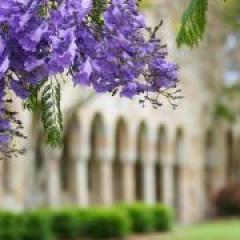Preliminary archaeological results from research on Mithaka country, Channel Country, Far Western Qld
Abstract
In ecological terms, the desert channels stretching between Windorah and Birdsville in Far Western Queensland (known as the Channel Country) is today recognised as classic boom and bust country. It is one of the world’s few remaining desert channel systems that have not been modified through large scale regulation and irrigation systems. Marked by seasons of great aridity, and semi-annual episodes of ecological abundance, the economy of the Mithaka people in the past appears to have been well adapted to these dramatic environmental shifts. The ethnographic record of the Channel Country has played a prominent role in the development of Aboriginal historian Bruce Pascoe’s Dark Emu hypothesis, that argues some Aboriginal economic systems should be classified as agriculture.
In a large environmental archaeology and cultural heritage project funded through the ARC and Qld State Government Looking after Country grant scheme, we have initiated research that aims to investigate the Mithaka landscape within the context of this rich ethnographic record. In this presentation I will provide initial research results and provide comments on the complexity of this system, and the collaborative nature of the work aimed at assisting the Mithaka reconnect with their past and conserve this rich cultural record.
About the presenter
Dr Michael Westaway is an Australian Research Council Future Fellow working in the field of bioarchaeology in Australia and New Guinea. He is based at the University of Queensland.
About Archaeology Working Papers
The Working Papers in Archaeology seminar series provides a forum for dissemination of archaeological research and ideas amongst UQ archaeology students and staff. All students are invited to attend the series and postgraduate students, from honours upwards, are invited to present their research. The aim is to provide opportunities for students, staff and those from outside UQ, to present and discuss their work in an informal environment. It is hoped that anyone interested in current archaeological directions, both within and outside the School and University, will be able to attend and contribute to the series.


